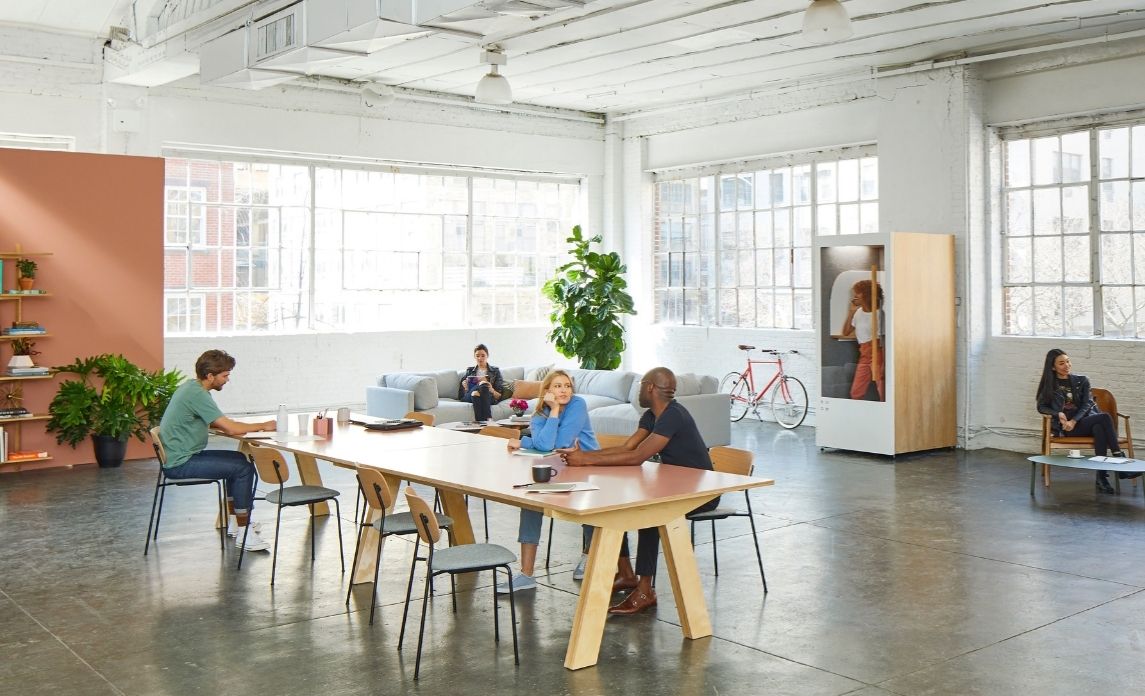Open-plan offices have their specific pros and cons. They are multi-functional and collaborative spaces, allowing for a variety of different work activities to take place in one large and versatile area. They are easier to maintain than conventional ones, saving money for many companies worldwide. They paved the way for aspirational terms like “virtual meeting rooms,” “hot desks,” and “smart office design” to have a place in the minds of otherwise bored employees.
Unfortunately, in some workplaces, open-plan could also mean loud, distracting, unproductive, and… dirty.
One of the most common complaints about communal office spaces is poor cleanliness and hygiene. Unfortunately, not everybody has a great sense of personal and workplace hygiene. Some co-workers may not have good office etiquette and won’t clean up after themselves. Some wouldn’t even bother to wash their hands after going to the bathroom.
Health and well-being in a work environment is incredibly important whether it’s in a private office or an open one, so let’s take a look at how poor hygiene can impact your staff and what you can do about it.
Health impacts of poor open plan office hygiene
There are many causes of an unhygienic workplace. People attending work when they are sick, dirty work surfaces, germs in commonly touched areas such as door handles and computer equipment, poorly maintained bathrooms, and unsanitary food preparation areas, are just some of the common problems, just to name a few.
A British study from 2016 found that 69% of the people surveyed considered their workplaces to be hazardous to their health. About 35% of people had picked up an illness from their office, with 18% suffering from food poisoning or stomach bugs as a direct result of an unclean workplace.
An untidy and unclean workplace is not only risky for spreading illness, but also for causing physical injuries. The same study found that 39% of people had been hurt in their offices by slipping or falling on dirty or wet floors.
Open-plan offices are at extra risk of health and safety issues. Compared with private or cellular offices, workers in open-plan offices have a 62% higher rate of sick leave. It is also possible that people use sick days simply because they are dissatisfied with their unpleasant work environment and do not want to spend time there.
These health impacts have further effects on your people and your business. If these issues go unaddressed for too long, they could also start to impact employee mental health, causing additional anxiety, stress, and depression. People are less satisfied with their jobs and less motivated to work hard if they are working in an unpleasant environment. If their workplace is not well maintained by management, it also sends a message that their employer does not care about their health and wellbeing.
Employee turnover will likely be high, and the continuous sick leaves come at a cost to the company. Constant absences also put more work pressure on the remaining staff members, which eats away at their job satisfaction even more.
What to do about an unhygienic open office?
Prevent illnesses from spreading.
Make sure that staff members do not come into work when they are unwell. This is the only way to reduce the chance of viruses entering the office environment in the first place. Being flexible with sick leave arrangements and offering flexible working options will encourage employees to stay away from others when they are sick. People often come to work unwell because they feel like they can’t take a sick day as they are too busy, or because they’ve already used their leave allowances.
People often come to work unwell because they feel like they can’t take a sick day as they are too busy, or because they’ve already used their leave allowances.
Many workplaces offer more than the minimum amount of sick days and can make arrangement for people to work from home if need be. This makes it easier for people to stay away from work when they are sick and costs the business less in the long run.
Regular desk cleaning.
An unhygienic desk is a real health risk. A typical office desk contains over 10 million bacteria, which is 400 times more than a standard toilet seat. Ensure that your staff have all the equipment they need to keep their workspaces clean and healthy.
Provide hand and surface wipes, antibacterial wipes, hand sanitisers, and general dusting and spray-and-wipe supplies. Encourage employees to do this regularly by having an office-wide desk cleaning every couple of weeks.
Promoting good hygiene.
Use signs as reminders in bathrooms and kitchens for thorough hand washing (or good hand hygiene). Let them know they need to tidy up after themselves and that practicing good hygiene is just as important as the face to face interactions they have in the office. You could consider establishing a ‘wellbeing calendar’ where every month you focus on a different aspect of personal health and wellbeing. This will keep healthy and hygienic practices at the front of everyone’s mind.
Professional cleaners for communal spaces.
Your best weapon against germs and bacteria is to let a professional cleaning crew do the work for you. Crewcare can provide tailored office cleaning services for businesses of all sizes. From sanitising communal surfaces and areas to taking care of rubbish and recycling – you can rely on us for a thorough and professional service. Our trained and security vetted teams can take care of all of your general office cleaning needs, as well as specialist services such as window cleaning, floor polishing, and carpet cleaning.


